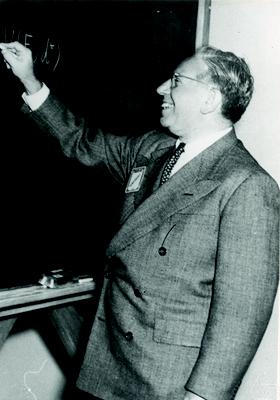movies, where a bunch of skinny, dorky looking teenagers come together to beat the star players of the school in a game of baseball, or football, basically any team sport. This whole feat is however impossible, without the guidance of a rather obscure (career wise, of course) coach who has been ousted by the community or who just knows the game too well to be bothered by some trophy that other coaches crave for. But don’t be fooled by their rather tragic past, or even their rude, unkempt demeanour there is something that makes you root for them despite the fact that their track record is not very good. Logically speaking, they have far too much experience losing, which is why we as the audience is always eager to dismiss them as backbenchers, let alone a team to have potential to win.
Why is it, (if not for the empathetic angle created by the brilliant director) that we presume when a team or person has the maximum wins, he is bound to win every time? We even go a step further and presume that if we replicate their story, we are bound to win as well. This is what psychologists like to call a Survivorship Bias.
 Confusing, I know, which is why I hounded the internet for some place that could break it down for me, and I found this TEDX talk by David McRaney – of “You Are Not So Smart”. He starts off talking about the American Operational Research Team that was set up to solve mathematical and statistical problems during the Second World War. During a war you are constantly looking out for your troops trying to have the highest number of survivors, which was what the American Operational Team was set up for. Fighter planes were precious and so were their pilots, and getting them back in workable condition after a bombing was pivotal, except, that their numbers were steadily dwindling. The crafts that came back were asked to mark the areas that had hits, and soon a pattern formed. There was a concentration of hit in particular areas and the General saw this and immediately ordered those areas to be reinforced with metal. This was exactly the kind of thinking you and I would do, but it was Abraham Wald, a noted statistician, who also happened to be on the team saw it differently, he intervened and asked for the area that was not hit to get further reinforcement (WHAT!!!).
Confusing, I know, which is why I hounded the internet for some place that could break it down for me, and I found this TEDX talk by David McRaney – of “You Are Not So Smart”. He starts off talking about the American Operational Research Team that was set up to solve mathematical and statistical problems during the Second World War. During a war you are constantly looking out for your troops trying to have the highest number of survivors, which was what the American Operational Team was set up for. Fighter planes were precious and so were their pilots, and getting them back in workable condition after a bombing was pivotal, except, that their numbers were steadily dwindling. The crafts that came back were asked to mark the areas that had hits, and soon a pattern formed. There was a concentration of hit in particular areas and the General saw this and immediately ordered those areas to be reinforced with metal. This was exactly the kind of thinking you and I would do, but it was Abraham Wald, a noted statistician, who also happened to be on the team saw it differently, he intervened and asked for the area that was not hit to get further reinforcement (WHAT!!!). |
|
| Mouth-watering image taken from https://llindseyeats.wordpress.com |
So the moral here is to look at anything without having any sort of bias of your own. It is very VERY difficult, given we are human and not machines, but look at it like this. Say that you look at the whole thing as a set of data. What you have with a player who has kept winning all his life without struggle is limited data, as in something that just gives you one side of the story and what you have with experience and someone who has fallen down a couple of times is a huge bag of data, that gives you both sides of the picture, giving you very valuable set of information you can work with. It is up to us, the people interpreting the data, how to use that information, because in the end it is just a set of random data. So what a really good coach, or a master truly does is looks at the set of data and uses it to his advantage. A master has over the years collected so much information that he can successfully predict, repeat and in the truest sense of the word master the subject of his study.
Missing what’s missing – David McRany



